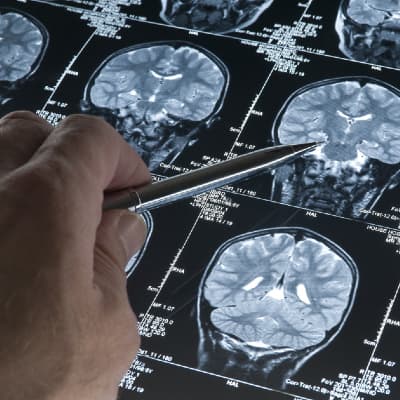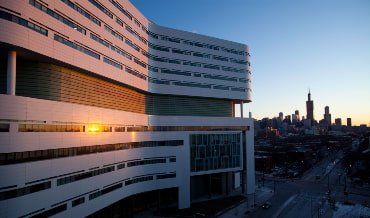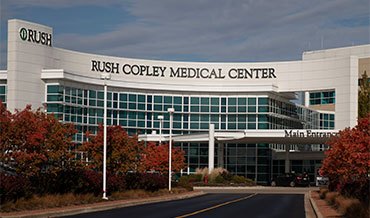The Rush Approach to Neurocritical Care
Ultimately, damage to your brain — such as from a stroke or a traumatic brain injury — affects your ability to be independent.
That's why Rush neurocritical care providers focus on preserving your brain function and preventing further damage to your brain when you're in the intensive care unit (neuro ICU).
Our neuro intensive care units in downtown Chicago and Aurora/Fox Valley offer a healing environment with providers trained in neurological issues. Whether you are recovering after spine or brain surgery or have a brain emergency, our neuro ICU teams are committed to providing you the highest possible care.
In addition, Rush has neurocritical care specialists — also knowns as neurointensivists — in downtown Chicago. Neurointensivists have further training in neurocritical care to provide a higher level of emergency brain care.
Rush Excellence in Neurocritical Care
- Patient transfers for specialized care: More than 1,200 patients per year are transferred to Rush University Medical Center from other hospitals. These hospitals send their patients to us for a higher level of expertise and technological capabilities. For example, neurointensivists in downtown Chicago are able to provide continuous EEG monitoring for patients in status epilepticus.
- Collaborations with expert neurosurgeons: Neuro ICU specialists work closely with Rush neurosurgeons throughout your recovery in the ICU. For instance, if the team decides the pressure inside your brain needs monitoring, neurosurgeons quickly place the monitors in your brain. This allows the team to make faster, informed adjustments to your treatment.
- Additional neurologic patient needs: Rush neuro ICU teams are trained to address the complexities of neurologic emergencies specifically. A healthy blood pressure or blood sugar measurement while you're in the neuro ICU is different than it would be in other intensive care units. Our neurocritical care providers know what to look for to prevent additional damage to your brain.
- Advanced monitoring technology: The Rush University Medical Center neuro ICU has advanced monitoring that allows the critical care team to more quickly tell if you are at increased risk for a second brain injury. This advanced monitoring includes the only cerebral microdialysis monitoring system in Illinois. The more quickly the team is able to identify risks, the more quickly they can make adjustments (e.g., increasing or decreasing your blood pressure) to address them.
- Open communication with patients and families: Our neuro ICU teams understand that some people will recovery fully from brain and spine emergencies and, unfortunately, some will not. And we know that uncertainty can be incredibly stressful. That's why our neuro ICU teams communicate openly — and on an ongoing basis — with patients and families so you are involved in decisions that need to be made.







